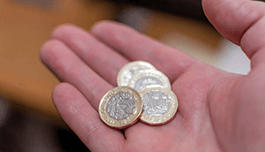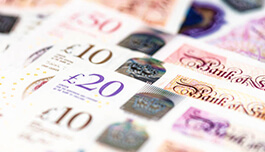The best speech is the book of Allah and reciting it regularly is one of the greatest acts of worship in Islam. A clear indication of the significance of reading the Qur’an is the unimaginable great reward that comes with reading it.
‘Abdullah ibn Mas’ud reported that the Messenger of Allah (ﷺ) said: “Whoever recites a letter from the Book of Allah, he will receive one good deed as ten good deeds like it. I do not say that Alif Lam Mim is one letter, but rather Alif is a letter, Lam is a letter, and Mim is a letter.” (Narrated by Al-Tirmidhi (2910), Ibn Abi Shaybah (10/461), Al-Tabarani (18/76), Al-Darimi (2/429), Al-Hakim (1/555), Abu Nu’aym (6/263) and Al-Bayhaqi (1983). Classed as Sahih by Al-Albani in Sahih Al-Jami’ (6469)).
The same thing has been reported from a number of companions.
‘Abdullah ibn Masu’d is reported to have said: “Learn this Qur’an, for by reciting it you will be rewarded with ten good deeds for every letter.” (Narrated by Al-Darimi (3351) and Ibn Abi Shaybah (6/118). Classed as Sahih by Hussein Salim Assad).
Ibn Abbaas said: “What prevents one of you, when he returns from his market or attends to his family needs, from reading the Quran, thus earning ten rewards for each letter?” (Narrated by Ibn Al-Mubarak in “Al-Zuhd” (807), Al-Marwazi in “Qiyam al-Layl” (121) and Al-Bayhaqi in “Shu’ab al-Iman” (4/569) with a good chain of narrators).
Allahu Akbar (Allah is the Greatest)! Look at the generosity of Al-Rahman (The Most Merciful), making it easier for His servants to gain huge rewards and get closer to Him.
How many letters are there in the Qur’an?
Mujahid is reported to have said: “This is what we counted of the Qur’an; it is three hundred and twenty-one thousand, one hundred and eighty (321,180) letters.” (Tafseer Ibn Katheer (1/99)).
How many good deeds for reading the whole Qur’an?
3,211,800 (three million two hundred eleven thousand eight hundred)!
Imagine of someone was told that they could earn three million dollars in one day if they sit down to do some work. No sane person would reject this offer. Yet, the 3 million hasanat we can earn from reading the Qur’an (in a single day) is much more valuable than the three million dollars because the hasanat are the currency of the hereafter, and the hasanat will determine the ranks in Paradise.
How many good deeds for reading one juzz of the Qur’an?
The glorious Qur’an is divided into 30 juzz (parts), each consisting of approximately 10,706 letters.
To get the total reward for reading just one juzz of the Qur’an, we have to multiply this number by ten.
The answer we get is: 107,060 hasanat (good deeds).
That’s right, you can earn more than 100,000 good deeds by reading one juzz of the Qur’an daily, which takes less than 30 minutes at a moderate speed. Who amongst us doesn’t want to earn 100,000 good deeds for half an hour work?!
A worldly example to imagine how so many good deeds will be counted
One of the scholars likened the hasanat that you earn from reading the Qur’an to the gas pump meter that rapidly counts up as you fill up your car with fuel. The more you fill up, the higher the amount will show. It just goes on and on.
The reward for reading the Qur’an is much faster and greater than that!
Just reflect on the great reward that you’ll be missing out on when not reading the Qur’an regularly.
And next time you walk into a masjid and you see some people sitting in a corner reading the Qur’an, think of this example presented here and imagine each person having a small meter next to them that counts rapidly the number of letters they are reading – Subhan’Allah! You’ll never sit idly next to them again, Insha’Allah.
The eagerness of the pious predecessors to read the Qur’an often
Given these huge rewards, the noble companions and those of the early generations of this ummah who followed them, were keen to read the Book of Allah on a daily basis, sometimes even completing the whole Qur’an in one day!
An-Nawawi said: “As for those who completed the Qur’an in a single rak‘ah, they are innumerable, because they are so many. They include: ‘Uthman ibn ‘Affaan, Tameem al-Daari, and Sa‘eed ibn Jubayr.” (Al-Adhkaar, pg. 102).
Ibn Rajab al-Hanbali said: “Qataadah regularly used to complete the Qur’an every seven days, and in Ramadan he would complete it every three days, and in the last ten nights of Ramadan he would complete it every single night. In Ramadan ash-Shaafa‘i used to complete the Qur’an sixty times (i.e., twice a day), reciting it outside of prayer. Something similar was also narrated from Abu Haneefah. (Lata’if al-Ma‘arif, pg. 171).
Imagine the millions of good deeds that the pious predecessors used to earn on a daily, weekly and monthly basis reading the Qur’an and compare that performance to your own. If you’re lacking in this regard, use them as a source of inspiration and try to increase your recitation of the Qur’an so that you will also earn millions of good deeds by reading the book of Allah.
And Allah is the source of strength.






